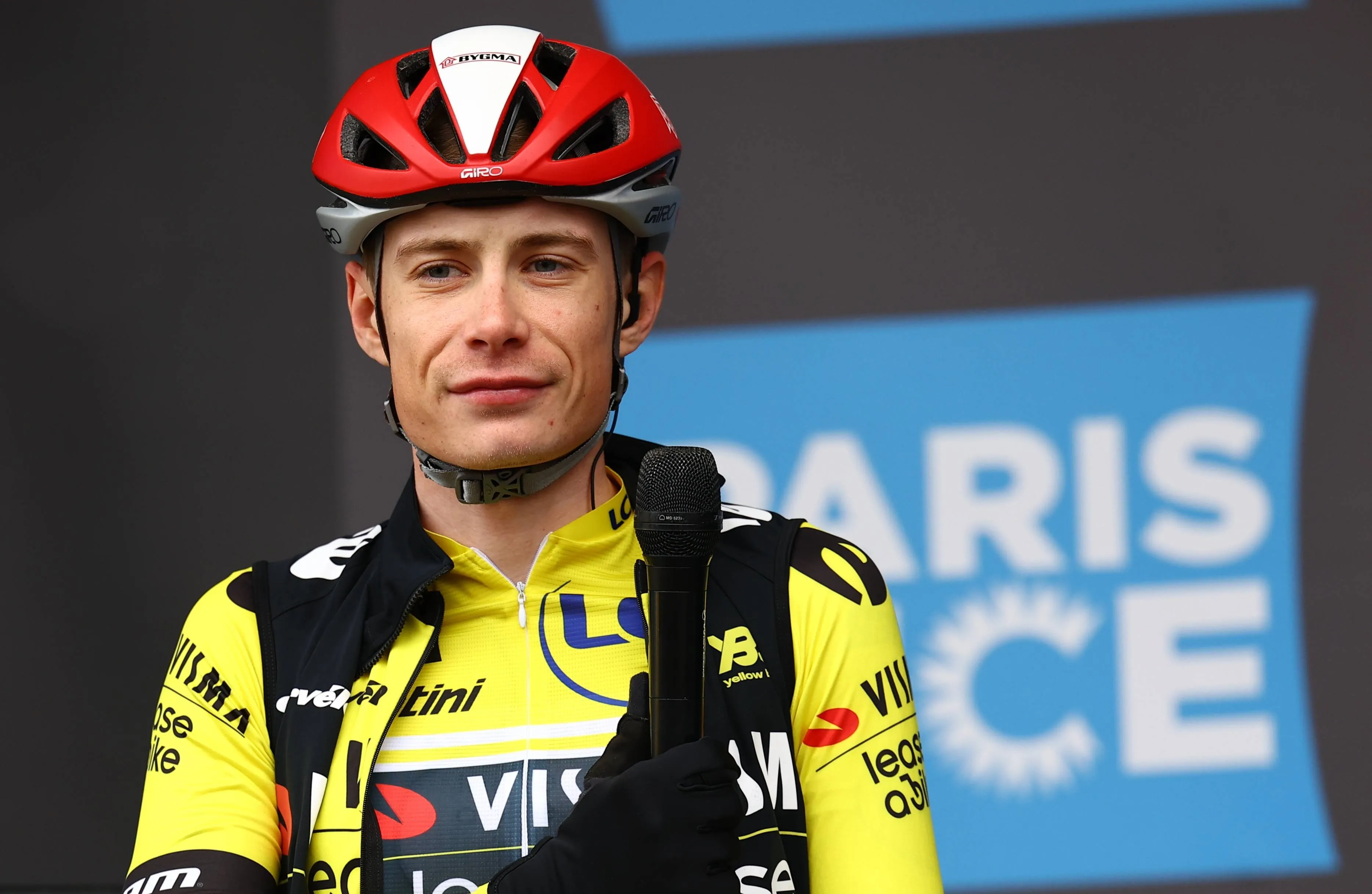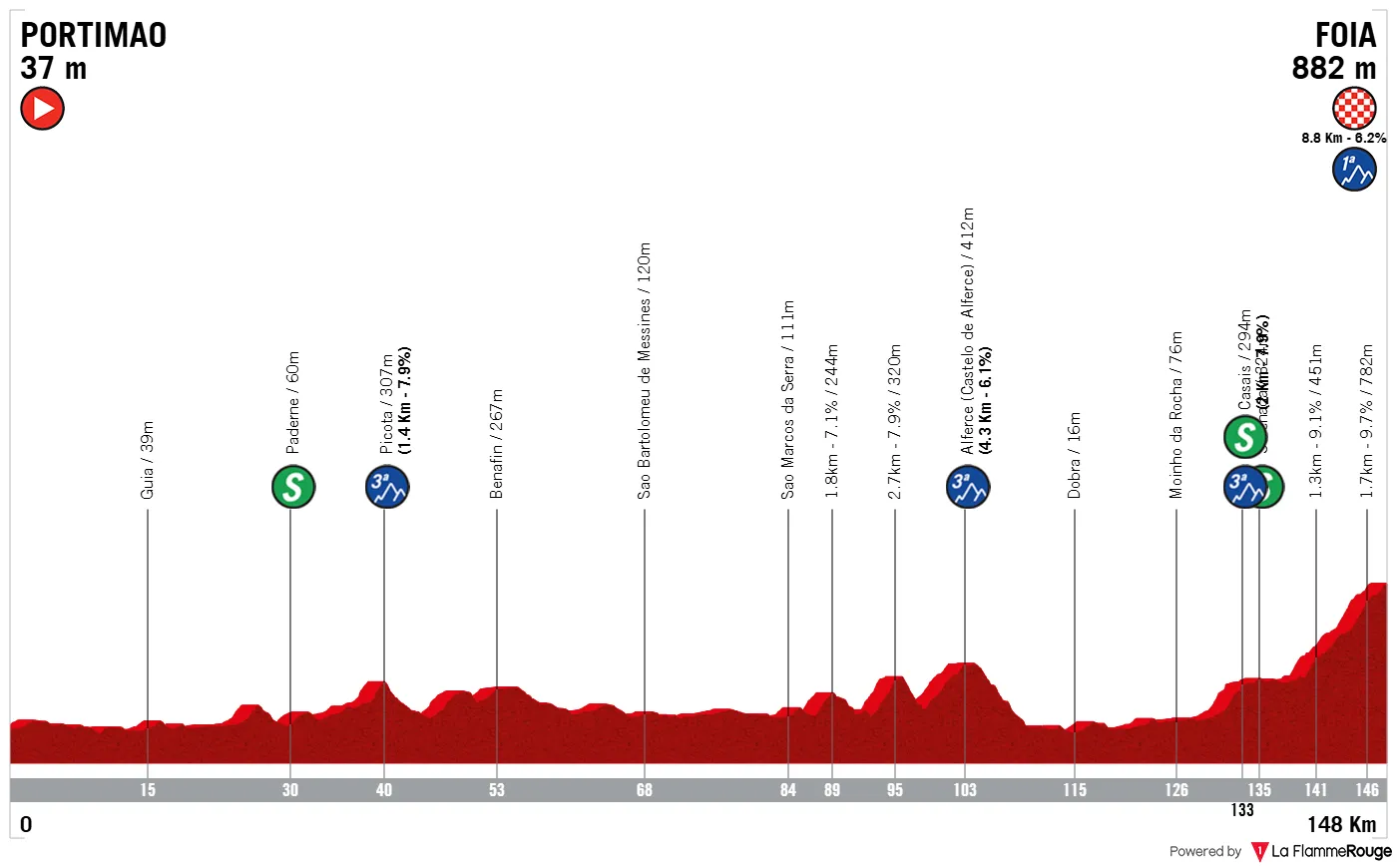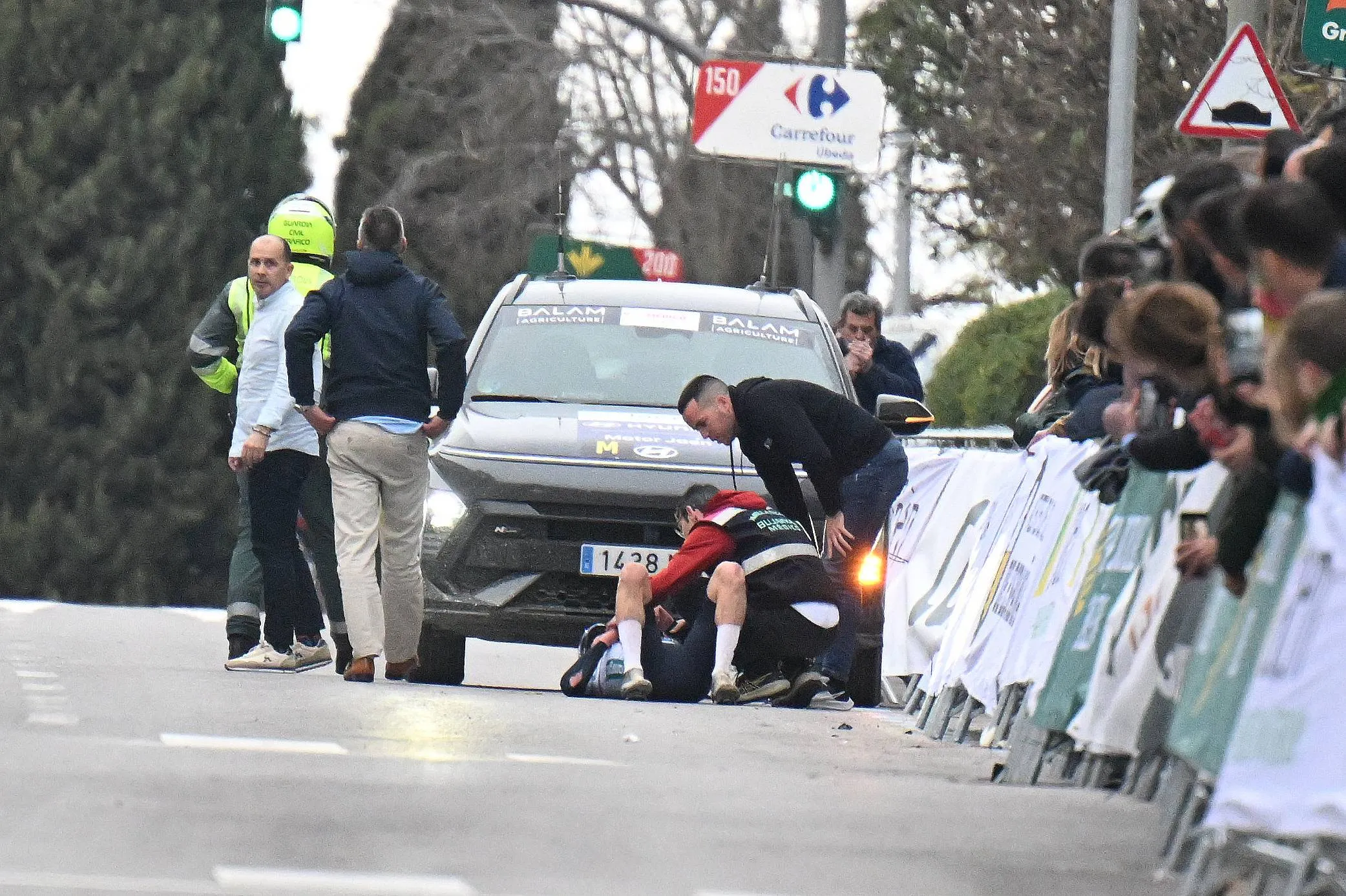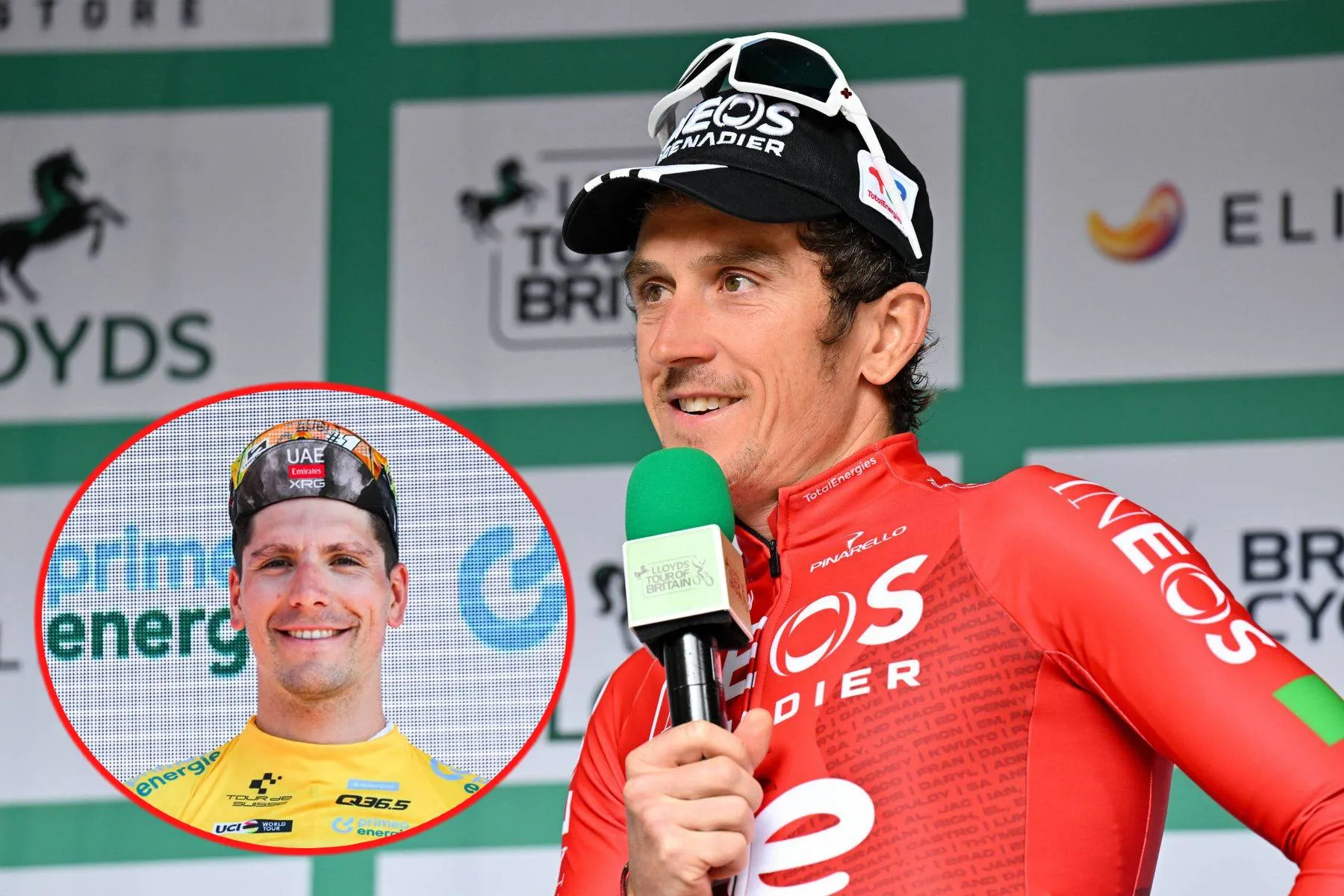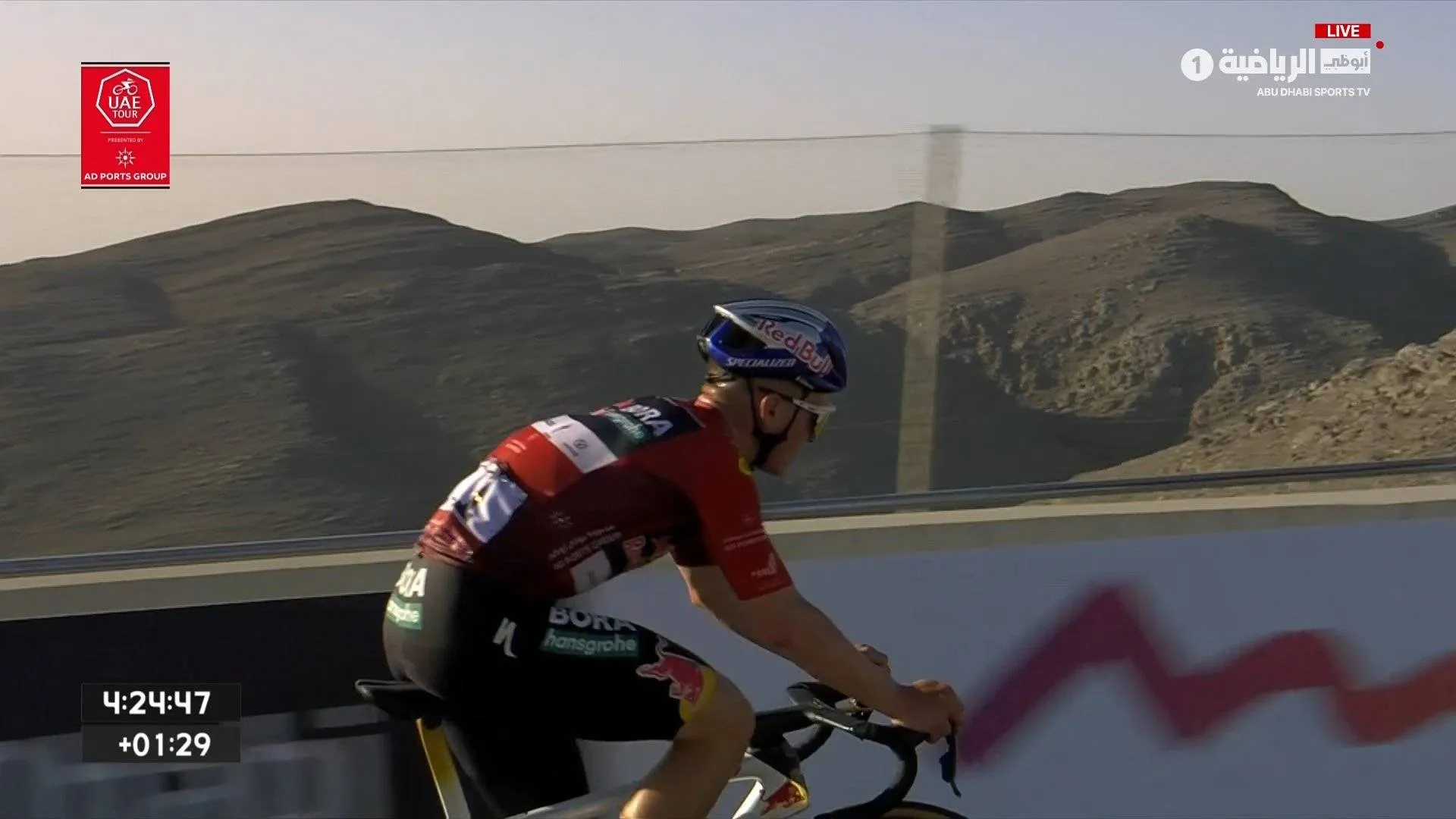"There’s no time... What do you do in the Tour de France if a rider hits their head?" - Bjarne Riis doubts peloton will learn from Jonas Vingegaard's concussion scare
CyclingMonday, 31 March 2025 at 19:00

Jonas Vingegaard was forced to abandon Paris-Nice 2025 with a concussion. The Dane didn't immediately leave the race following his crash however, finishing the stage first. This has led to some criticism in regards to the lack of enforcement of concussion protocol, but in a sport where time is all-important, will teams ever be willing to spend valuable minutes at the roadside doing a check?
This topic was debated by Vingegaard's compatriot, 1996 Tour de France winner Bjarne Riis recently, in conversation with BT.dk. "It’s difficult. The problem with cycling is that riders crash from time to time, and there isn’t enough time to conduct a proper examination," begins the assessment of the 60-year-old. "We can easily point fingers at teams and race doctors and ask, 'How could you let him continue riding?' But if you take the time to conduct a thorough examination, the peloton is gone. It’s a dilemma, and I’m afraid it’s something we’ll have to live with. That’s how cycling is structured. There’s no time."
Whilst more and more sports are taking the long-term dangers of concussion increasingly seriously, cycling remains somewhat lacking in this regard. As mentioned already, a big reason for this is the fact that bike racing, especially in stage races, is so time oriented for those hoping to win the race. With every second being vital, teams might be reluctant to spend literal minutes stopped at the roadside conducting a concussion check, only for the rider to ultimately be fine, but now out of race-winning contention.
Read also
"When you’re a sports director and you’re in the car, your instinct is to rush to the rider, and then you focus on getting him back on the bike as quickly as possible. You assess the rider, how badly he’s hurt, whether he stays down, or how much pain he’s in," explains Riis. "Then you look at the bike, and the mechanic knows exactly what needs to be done. From here, the rider has to get back on the bike as quickly as possible and go. The rider has the same instinct: to get up and get going immediately."
"Sometimes, there will be so much at stake that it will be almost impossible to make the right decision," adds the experienced Dane. "A doctor might have a different perspective on this, but I see it from a logical point of view, and how things really are in a peloton. Honestly, what do you do in the Tour de France if a rider hits their head?"
Is it a realistic idea that Team Visma | Lease a Bike would willingly let Jonas Vingegaard lose minutes in the fight for the Maillot Jaune this summer whilst they do a concussion check, should he crash and bang his head again? Make no mistake, for the health of the rider, be that Vingegaard or anyone else in the peloton, that is 100% what should happen. With so much at stake though, the theory of the idea remains some way off the actual reality.
"You can hit your head without having a serious injury. Is that enough reason to quit if you're wearing the yellow jersey or hoping to take it the next day? Should you stop and withdraw every time you're in doubt?" Riis asks rhetorically in his conclusion. "Whew, that’s tough."
Read also
When are teams going to take a concussion as serious as it is? The effort that Vingegaard did with a concussion can end a career, he wouldn't be the first one it happens to. https://t.co/G6k1PdS3Km
— Dieter Loos (@LoosDieter) March 24, 2025
claps 1visitors 1
Just in
Popular news
Latest comments
- Bahraini suspicious..Santiago19-02-2026
- The problem is, a British 'boss' opening the gates, when the native workers not wanting them!
 leedorney19-02-2026
leedorney19-02-2026 - Who is overrating him on climbs? Everyone knows since ages it’s his weakness and needed years of work. Question us if he can do enough about it. For sure he won’t be able to improve his TT enough to compensate.Mistermaumau19-02-2026
- What do you call only seeing someone’s positives?Mistermaumau19-02-2026
- Remco banging his leg, just like he banged his saddle when pog dropped him. He ain't fooling anyone with those antics. I'm not a hater, but he's a bit overrated on serious climbs.Santiago19-02-2026
- Obviously isn’t learning from the Epstein fallout. The more you unravel the past the more undiscovered mess appears.Mistermaumau19-02-2026
- I like Tadej a lot (a lot, a lot) but you're a little exxagerated... Allow me to give you some advice: Never become a fanatic for something or someone (neither pro nor against, haters are against-fanatics). And never idolize human beings.
 maria2024202419-02-2026
maria2024202419-02-2026 - What about them? What did they get away with in the end?Mistermaumau19-02-2026
- If I were Johan Bruyneel, I would be careful what I wish for... There is a high likelihood that revealing your side of the story will actually make things WORSE for you! Also, I suspect Lance will make himself look like the victim and throw you and everyone else under the bus!Pogboom19-02-2026
- As per a great many on the world stage...you must be beside yourself amongst them all!
 leedorney19-02-2026
leedorney19-02-2026
Loading
1 Comments
